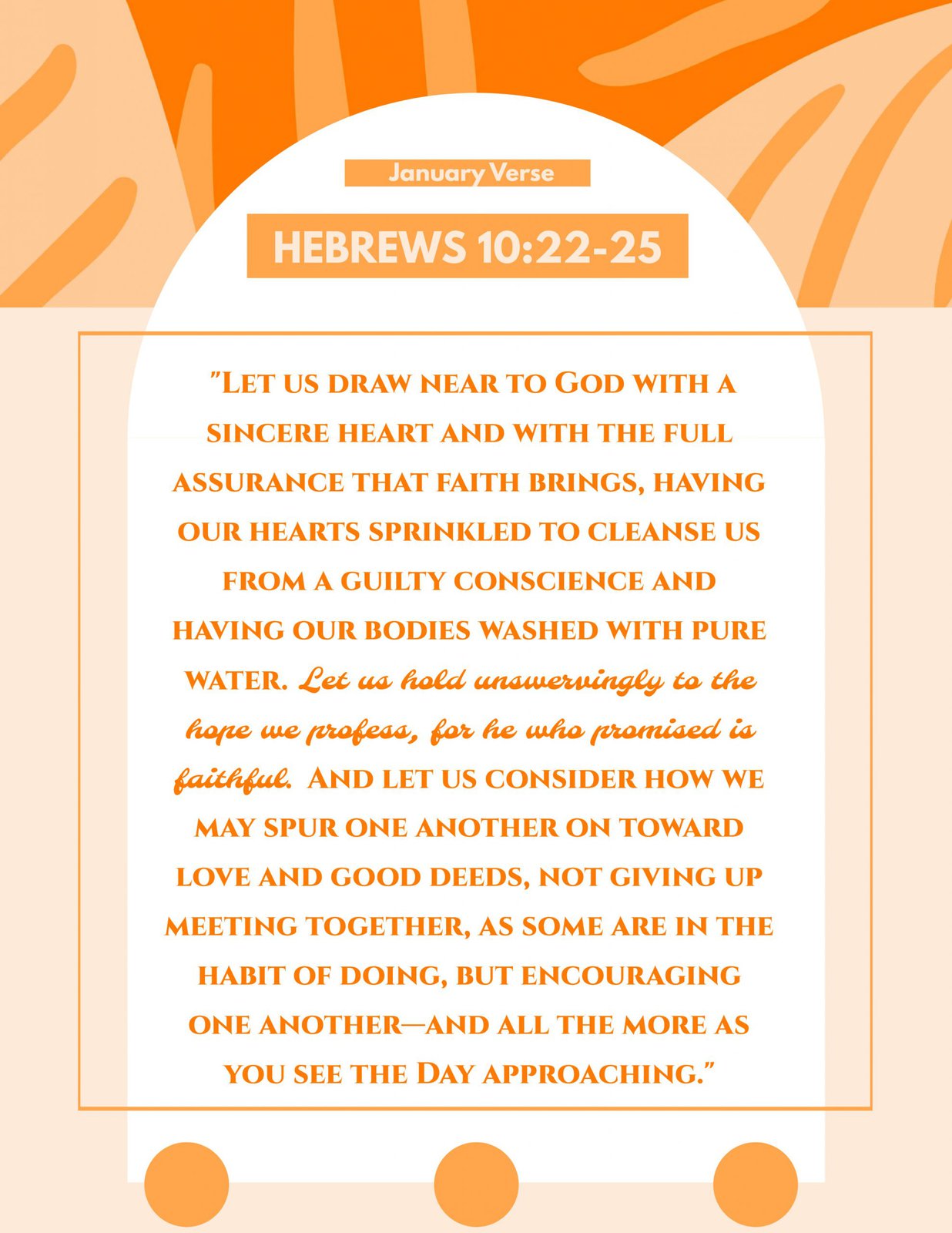The uncertainty of the past few years has provided copious evidence for the futility in making New Year’s predictions. In his reflections on the start of another new year, author Tim Challies had this to say:
“A new year has opened before us and like a watchman gazing into dense fog, we see just a few steps ahead and only vague shadows looming beyond. We do not know what the year will bring, whether great triumphs or great failures, great joys or great sorrows, great gains or great losses. It could be the best of all years or the worst, the easiest or the hardest, the most heart-warming or the most heart-breaking.”
Sitting here in mid-January, still on the very cusp of 2023, we do not know what this year will hold. Depending on who you ask, the vagueness of it all may be exhilarating or terrifying; either way, it’s undeniable.

It’s no surprise that the Word of God has something to say about all of this. In fact, the Hebrew language itself (the language of the Old Testament texts) has a peculiarity that sheds light on our relationship to the future: in Hebrew, the word for yesterday is connected to the concept of being opposite to, or facing something. Conversely, the word for tomorrow is connected to the concept of being behind or after. In other words, in Hebrew, the future is behind a person and not in front. David Kinlaw points out that, “instead of striding confidently into the future, the Hebrews talked about stumbling backward into it. We can see the past, but we cannot see the future, and we can never tell exactly where our foot will land.”
In this backwards stumbling, though, we can find hope and confidence in knowing that we are not alone. The Lord is walking beside us, and as the author of time and One who transcends its boundaries, He is facing both backwards and forwards, to past and future and present too. With our hand in His we can have confidence because, as Kinlaw so beautifully reminds us, “we do not know what the future holds, but [we] do know who holds [our] hand.” In this way, then, the haziness of the coming year is a blessing because it compels us to fix our gaze on our true and trustworthy Guide.
I’m holding tightly to the certainty of God amid all other uncertainties in 2023, my year of embracing faithfulness. And my theme verse for the year is keeping me rooted in the truth of God’s sovereignty and His unequivocal and unrivaled suitability for the role of Commander in Chief Over 2023.
Throughout the month of January I am meditating on the truths in and around that central verse that provide insight into why and how to faithfully cling to God in the face of uncertainty.

The author of Hebrews reminds us that we can draw near to God because of the blood of Christ, which has cleansed us from the sin that would have separated us from our Lord. Jesus made it possible for us to enter God’s presence without fear or guilt or qualification. We need not hold God at a distance, or worry He may do the same to us; Jesus already did the work that was needed to connect the Lord’s hand with our own. As every Sunday School preschooler can tell you, “Jesus!” is the answer for this question of why we can trust God with the year to come.
This passage from Hebrews also reminds me that my hope is not meant to be kept to myself, and in fact this communal component is part of the how of staying faithful. God cares for each of us individually, but He cares for all of us in community as well, and He has given us the gift of fellow believers to encourage one another in our faith. Pivotal for holding fast to God this year will be my engagement in Christian fellowship, where I am 1) building up other believers and 2) allowing them to speak directly into my life.
God is enough for each of us, but the small flame of our with-ness in Him is transformed into a blazing and vastly more effective fire when we followers of Jesus choose to link arms with one another. That light of our united fire shines out into the darkness of the future, illuminating the straight and narrow path upon which we carefully stumble into 2023—uncertain, but not alone.